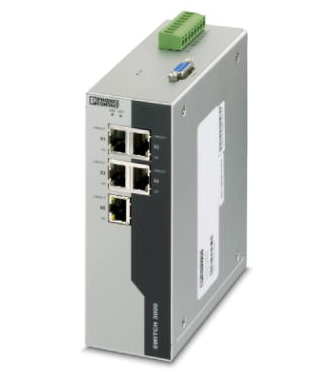Vulnerabilities in Phoenix Contact Industrial Switches Can Allow Hackers to Disrupt Operations
Researchers have discovered potentially serious vulnerabilities in industrial switches made by Phoenix Contact, a Germany-based company that specializes in industrial automation, connectivity and interface solutions.
According to advisories published last week by ICS-CERT and its German counterpart CERT@VDE, Phoenix Contact’s FL SWITCH industrial ethernet switches are affected by authentication bypass and information exposure flaws. Ilya Karpov and Evgeniy Druzhinin of Positive Technologies have been credited for reporting the flaws.
The security holes affect 3xxx, 4xxx and 48xx series switches running firmware versions 1.0 through 1.32. The vendor addressed the weaknesses in version 1.33, but researchers told SecurityWeek that it took the company roughly 160 days to release patches, which they haven’t been able to verify.
The more serious of the flaws is tracked as CVE-2017-16743 and it has been assigned a CVSS score of 9.8, which puts it in the “critical severity” category. The vulnerability allows a remote, unauthenticated attacker to bypass authentication and gain administrative access to the targeted device by sending it specially crafted HTTP requests.
The second flaw, CVE-2017-16741, has been rated “medium severity” and it allows a remote and unauthenticated attacker to abuse a device’s Monitor mode in order to read diagnostics information. Firmware version 1.33 allows users to disable the Monitor mode.
Related: Learn More at SecurityWeek’s 2018 ICS Cyber Security Conference
Positive Technologies researchers told SecurityWeek that attackers can exploit the vulnerabilities to gain full control of a targeted switch and leverage it to interrupt operations in the ICS network, which can have serious consequences.
While some Phoenix Contact products do appear to be connected directly to the Internet, experts have not found any of its industrial switches on search engines such as Shodan and Censys. Positive Technologies says these industrial switches are typically used for internal PLC networks.
“This does not mean that such devices could not be found and accessed from the internet, it only means that we were not able to find such cases using shodan.io and censys.io,” researchers said.
Related: More Industrial Products at Risk of KRACK Attacks
Related: Serious Flaw Exposes Siemens Industrial Switches to Attacks
Related: Cisco IOS Flaws Expose Rockwell Industrial Switches to Remote Attacks















